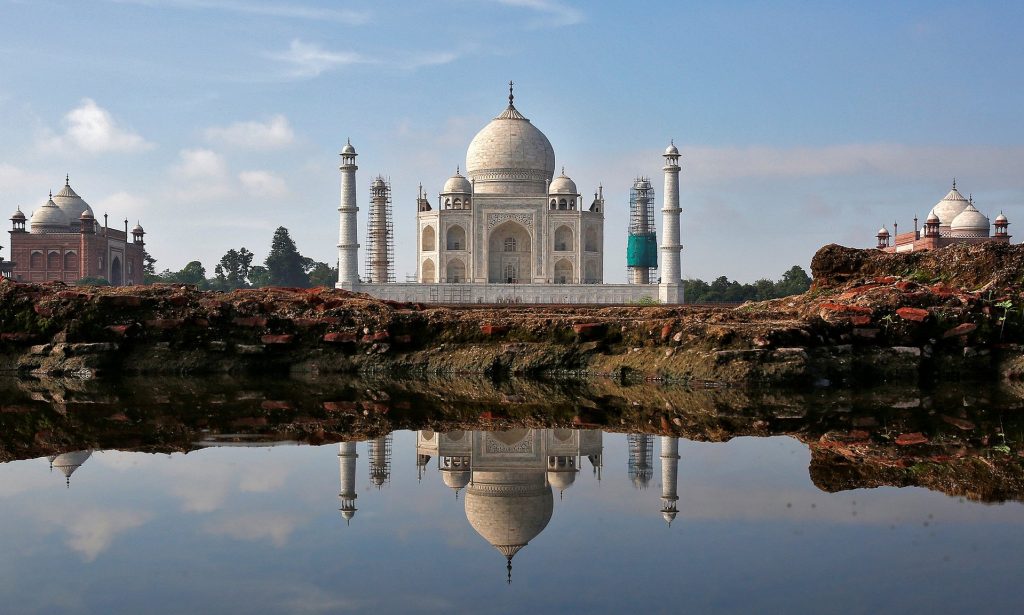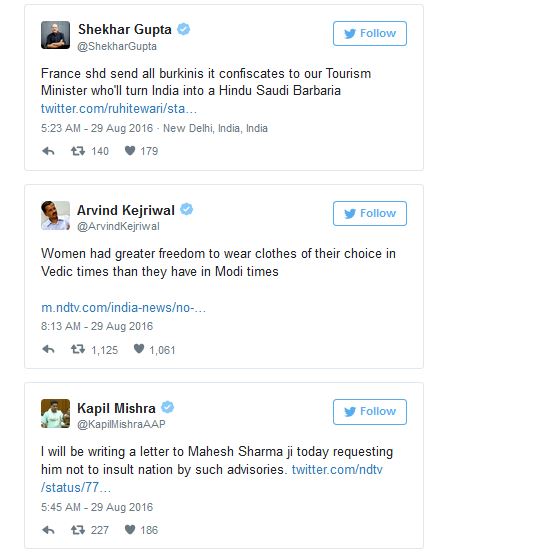
Photograph: Cathal Mcnaughton/Reuters
India’s tourism minister has said foreign women should not wear skirts or walk alone at night in the country’s small towns and cities “for their own safety”.
Discussing tourist security in the north Indian city of Agra, site of the Taj Mahal, Mahesh Sharma said foreign arrivals to India were issued a welcome kit that included safety advice for women.
“In that kit they are given dos and don’ts,” he said on Sunday. “These are very small things like, they should not venture out alone at night in small places, or wear skirts, and they should click the photo of the vehicle number plate whenever they travel and send it to friends.”
He added: “For their own safety, women foreign tourists should not wear short dresses and skirts … Indian culture is different from the western.”
The welcome kit, geared at female travellers and introduced last year, is one of a suite of measures introduced to address declining rates of female tourism after the high-profile gang-rape and murder of a Delhi medical student in 2012, and a number of subsequent attacks on female tourists.
The kit says: “Some parts of India, particularly the smaller towns and villages, still have traditional styles of dressing. Do find out about local customs and traditions or concerned authorities before visiting such places.”
It mirrors the UK Foreign Office advice to women travelling in India, which suggests they “respect local dress codes and customs and avoid isolated areas, including beaches, when alone at any time of day”.
Sharma clarified his remarks later on Sunday, denying they amounted to a dress code for foreign women. ”We have not given any specific instructions regarding what they should wear or not wear. We are asking them to take precaution while going out at night. We are not trying to change anyone’s preference,” he said.
“It was very stupid, not a fully thought-through statement,” said Ranjana Kumari, the director of the Delhi-based Centre for Social Research, a thinktank focusing on gender equality in India. “The minister doesn’t realise the implications of such irresponsible statements.”
Kumari said the remarks reflected “the syndrome of blaming women” for what they wore and where they were. She said: “But the problem is men and boys in India. They go for all kinds of misogyny and sexual acts, rapes and gang-rapes. It’s important for [Sharma] to have said how to punish the perpetrators of crime and stop the nonsense of ogling women and following them. Why should any girls come to India when it is becoming famous for not being safe to girls?”
India toughened sentences for rape and introduced fast-track courts for sexual assault trials after the fatal 2012 gang-rape focused world attention on violence against women in the country.
National crime statistics show 92 women are raped each day in India, mostly in rural areas, though the figure is widely believed to be an underestimate. Street harassment and violence, sometimes called “eve-teasing”, is even more common, experienced by 79% of Indian women according to a recent survey.
Tourists can be subjected to the same harassment and worse, most recently in July 2016 when an Israeli national was sexually assaulted by a gang of men in the Himalayan resort town of Manali. A Japanese woman was kidnapped and sexually assaulted in 2014 in Bihar and a Russian assaulted by an auto-rickshaw driver in Delhi in 2015, among other cases.
Sharma’s remarks trended on Indian social media on Monday and earned rebukes from political rivals.
Sharma has previously been criticised over his views on nights out for women. “It may be alright elsewhere, but it is not part of Indian culture,” he said last year.


